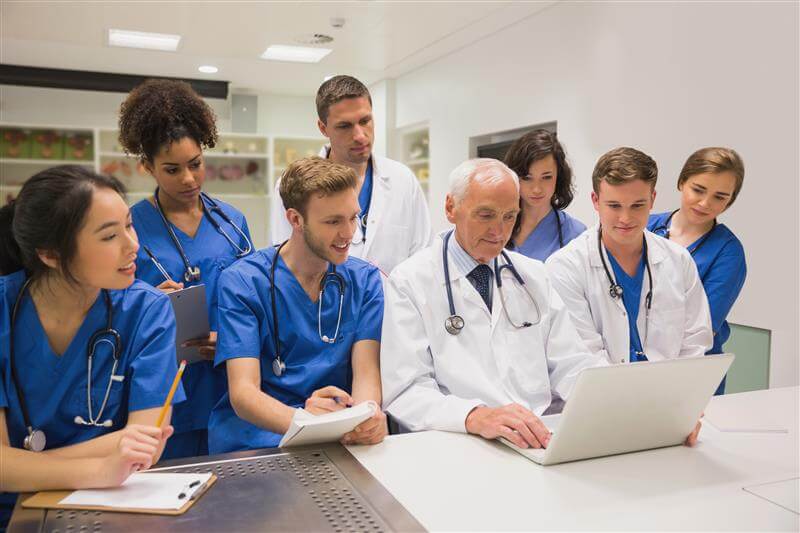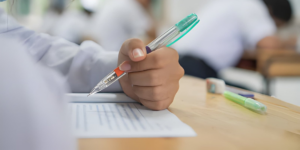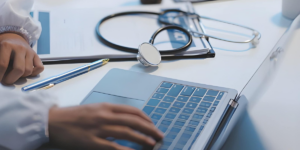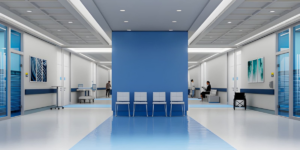Clinical rotations are one of the most pivotal stages in a medical student’s journey. After years of rigorous classroom learning, studying textbooks, and participating in simulation labs, clinical rotations enable students to transition into real-world healthcare environments. During clinical rotations, students get the opportunity to work in hospitals and clinics where they work directly with patients under the guidance of licensed physicians.
For international medical students, these rotations are especially critical as they provide the essential hands-on clinical experience needed to become competitive candidates for U.S. residency programs. By immersing students in the U.S. healthcare system, these experiences help them develop practical skills, build professional networks, and familiarize themselves with U.S. patient care protocols.
Let’s discuss in detail how clinical rotations at prepare students for U.S. residencies and how gaining firsthand experience in patient care will prepare IMGs for competitive residencies.
Why Are Clinical Rotations So Important?
Clinical rotations, also known as clerkships, are the third and fourth years of medical school. Clerkships are more than just a graduation requirement; they are the cornerstone of medical training. In medical schools in St. Kitts, rotations occur in both local hospitals and affiliated teaching hospitals in the United States, providing students with a unique opportunity to train in diverse healthcare settings.
They are a pivotal part of a medical student’s journey for several reasons:
-
Practical Experience:
Clinical rotations allow students to apply the theoretical knowledge they gained in the classroom to real-world patient cases. This practical application solidifies their understanding of diseases, treatments, and medical procedures. They also improve clinical judgment, diagnostic reasoning, and patient interaction skills.
-
Exposure to Specialties:
Clerkships provide exposure to top medical specialties, from internal medicine and surgery to pediatrics and psychiatry. This helps students make informed decisions about their future careers and which specialty they want to pursue for residency.
-
Residency Preparation:
U.S. residency programs value applicants with robust clinical training, strong evaluations, and familiarity with the American healthcare system. At WUSOM, strong USMLE preparation is the foundation for residency success. Our curriculum is designed to equip students with the knowledge, skills, and confidence they need to achieve high scores and secure competitive U.S. residency placements.
-
Developing Clinical Skills:
Under the direct supervision of physicians, students learn to take patient histories, perform physical exams, interpret lab results, and assist in medical procedures. This hands-on experience is irreplaceable for developing the skills necessary to become a competent physician.
-
Networking and Mentorship:
Working alongside attending physicians and residents offers invaluable networking opportunities. The relationships built during rotations can lead to strong letters of recommendation, which are crucial for residency applications.
-
Professional Growth:
Working alongside experienced physicians helps students develop bedside manner, adaptability, and confidence in patient care.
Navigating Caribbean Medical School Rotations
At WUSOM, students complete their clinical rotations at affiliated hospitals in the United States, Canada, and the United Kingdom. Navigating this phase requires proactivity and a strategic mindset. While clinical rotations are rewarding, successfully navigating them requires preparation, adaptability, and strategic planning.
Here are the key steps for international medical students:
1. Understand Rotation Structures
Medical schools in St. Kitts divide clinical rotations into core rotations and elective rotations. Core rotations in internal medicine, pediatrics, and surgery are mandatory as they provide a foundational understanding of medicine. Elective rotations are chosen based on career interests, such as cardiology, dermatology, or emergency medicine. Knowing which rotations to prioritize early on can help students tailor their experiences to align with their residency goals.
2. Maximize Learning Opportunities
Clerkships demand active participation. Asking thoughtful questions, volunteering for procedures, and engaging with healthcare teams can leave lasting impressions on supervising physicians. This strategy can provide critical evaluations and letters of recommendation.
3. Adapt to Diverse Healthcare Systems
Caribbean med students rotate through both Caribbean and U.S. hospitals. This involves adapting to differences in electronic health records (EHRs), patient demographics, and hospital workflows. Adaptability is a skill residency directors value highly.
4. Build Relationships and Network
Strong mentorship and professional connections can help students secure electives at reputable hospitals and gain exposure to residency programs in their chosen specialty. Networking during rotations often opens doors for observerships and future residency interviews.
5. Stay Organized and Focus on Exams
While rotations enhance clinical skills, U.S. residency programs still weigh academic performance heavily, particularly on the United States Medical Licensing Examination (USMLE). Students should balance clinical responsibilities with consistent exam preparation.
6. Professionalism and Communication
Rotations are a chance to refine both professional and bedside manner. Students should focus on communicating effectively with patients, their families, and the healthcare team. Building rapport and demonstrating empathy are just as important as medical knowledge.
7. Being Proactive
It’s essential for students to be assertive during their rotations. This includes asking questions, offering to help with tasks, and taking initiative. Actively participating in patient care and showing a genuine eagerness to learn can leave a lasting positive impression on supervisors.
How WUSOM Prepares Students for U.S. Residencies?
Forinternational medical graduates (IMGs), securing a U.S. residency is highly competitive. Clinical rotations are arguably the most important component of their application. WUSOM prepares students for the USMLE by focusing on:
-
U.S. Clinical Experience (USCE):
Residency programs in the U.S. look for applicants who are familiar with the American healthcare system. Completing rotations in U.S. hospitals shows program directors that a student is well-versed in U.S. patient care protocols, medical technology, and the electronic health records (EHR) systems used in the country.
-
Letters of Recommendation (LoRs):
Strong letters of recommendation from the U.S.-based physicians are vital. Rotations provide the perfect opportunity to work closely with attendings and residents who can write a personalized letter detailing a student’s skills, work ethic, and character.
-
Mentorship and Connections:
Rotations offer a chance to form mentorship relationships with physicians in a desired specialty. These mentors can provide valuable guidance on the residency application process and may even have connections to residency programs.
-
The ERAS Application:
The Electronic Residency Application Service (ERAS) is the primary system for applying to residency programs. The Clinical Experience section of the application is where students detail their rotations. A strong narrative and impactful experiences gained during clinical rotations can significantly enhance an applicant’s profile.
Final Thoughts
Clinical rotations at WUSOM are more than a stepping stone; they are the proving ground for future physicians. For international medical students, these rotations provide invaluable opportunities to gain U.S. clinical experience, refine practical skills, and establish the professional networks needed for a successful residency match. By approaching rotations with preparation, dedication, and adaptability, Caribbean medical students can transform these experiences into strong foundations for their medical careers.
Take the next step toward your medical career; apply to WUSOM’s MD program and gain the hands-on U.S. clinical experience that sets you apart from others.







